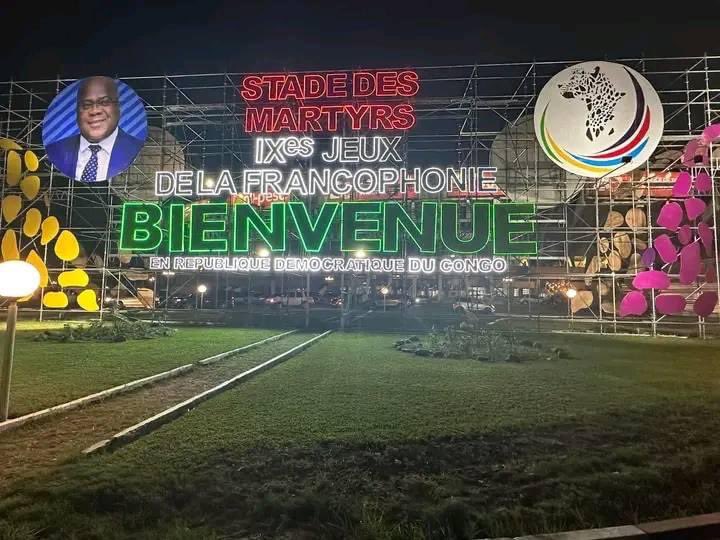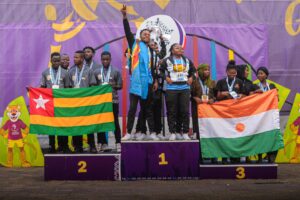We use cookies to help you navigate efficiently and perform certain functions. You will find detailed information about all cookies under each consent category below.
The cookies that are categorized as "Necessary" are stored on your browser as they are essential for enabling the basic functionalities of the site. ...
Necessary cookies are required to enable the basic features of this site, such as providing secure log-in or adjusting your consent preferences. These cookies do not store any personally identifiable data.
Functional cookies help perform certain functionalities like sharing the content of the website on social media platforms, collecting feedback, and other third-party features.
Analytical cookies are used to understand how visitors interact with the website. These cookies help provide information on metrics such as the number of visitors, bounce rate, traffic source, etc.
Performance cookies are used to understand and analyze the key performance indexes of the website which helps in delivering a better user experience for the visitors.
Advertisement cookies are used to provide visitors with customized advertisements based on the pages you visited previously and to analyze the effectiveness of the ad campaigns.

The IX Games of La Francophonie were held in Kinshasa from July 28 to August 6. Although fears of a botched organization haunted many minds before kick-off, the competition turned out to be a great success for the DRC, which was hosting an internationally renowned competition for the first time.
It was a masterstroke for the DRC, which brilliantly organized the IX Games of La Francophonie in Kinshasa from July 28 to August 6. For its first experience in organizing an international competition, the DRC left a very good impression on the 36 foreign delegations who took part in these Games of the world's French-speaking community.
However, with the delay in the construction and rehabilitation of the infrastructures that hosted the various events, many people, first and foremost the Congolese, expressed doubts as to whether the Jeux de la Francophonie would be held in Kinshasa.
Some countries, like Canada, France, Tunisia and others, had to significantly reduce the size of their respective delegations; others, like Quebec, cancelled their participation altogether, believing that, in addition to the delay in the construction and rehabilitation of infrastructures, the health and safety conditions were not assured for sending their athletes to Kinshasa. But the reality on site was quite different.
High-quality opening ceremony. The tone for the overall organization of this ninth edition of the Games was set with the colorful opening ceremony at the Stade des Martyrs in Kinshasa. Over 80,000 Congolese packed into the stadium to see what the ceremony was like, as they are used to watching international competitions elsewhere on TV.
A truly festive atmosphere was experienced by the public, dazzled by the parade of different delegations and above all by the magnificent cultural and musical show that took place on July 28. The athletes were equally enthralled by the opening ceremony, as was the case of Guillaume Bouliane, Canadian representative in the storytelling competition. "The parade of delegations was one of the most memorable moments of my life. It was my first time to enter a stadium with 80,000 jubilant people. It was immense, a surreal experience," he declared.
A very enthusiastic audience
Satisfied with the opening ceremony, the Congolese public made the IX Games of La Francophonie their own.All the sites where the sporting, cultural and artistic events were held were packed to the rafters. At the Stade des Martyrs site, the two twin gymnasiums built to host the women's basketball matches, with a total capacity of 5,000, were packed to the rafters every time. The large Martyrs stadium, where the athletics events were held, saw an average attendance of 35,000 people per day over the four days of competition.
At the Tata Raphaël stadium site, the gymnasium which hosted the freestyle wrestling and judo competitions was packed every day; the soccer stadium, which hosted the soccer tournament, had a daily attendance of at least 20,000. Table tennis and African wrestling were also well attended.A hot crowd that created an atmosphere that the competitors will find hard to forget for the rest of their lives.
"Now we have to think about organizing the AFCON".
"It's incredible, the Congolese people are a welcoming people, a people who transmit joy to you; a people who show you that they are happy to receive you", said the coach of the Lebanese women's basketball team, Nelly. And the final of the soccer tournament between Cameroon and Burkina Faso was played in a sold-out Stade des Martyrs. This ongoing enthusiasm was created by the sense of pride felt by the Congolese on seeing the successful organization of these Games of La Francophonie. "I'm very proud of my country, because today we've shown the world that we're also capable of organizing major competitions. There were no problems. All we needed was the will, and now we have to think about organizing the AFCON," declared Christophe, a Kinshasa resident we met at the Martyrs stadium
Infrastructure up to standard
Before the Games of La Francophonie, the DRC had no sports infrastructure other than soccer stadiums.But with this event, the country has acquired a number of infrastructures that meet standards. Even though work continued right up to the opening ceremony, the infrastructure built did not pose any major problems. A renewed Martyrs Stadium tartan for the athletics events, gymnasiums for basketball and judo or wrestling containing essential equipment.

Not ridiculous accommodation
The small problem encountered during these Games of La Francophonie was the athletes' accommodation.This was the case for the first two days after the opening ceremony. The Francophonie village planned for the Tata Raphaël stadium was delayed in its construction and relocated to the University of Kisnhasa, a little way from the competition sites.
During the first two days, the delegations experienced traffic jams and a few logistical problems, but the situation quickly improved. "Accommodation was not bad. It's true that conditions weren't like at home, but they made an effort to put us in conditions that were better than those of many Congolese in the city.We made the best of it.It's true that the first two days were almost chaotic, but things quickly settled down," declared a representative from France.
Most of the delegations were housed at the University of Kinshasa before the completion of part of the Francophonie Games village at the Tata Raphaël stadium, which was finally able to accommodate some of the delegations.
Acceptable level of competition
The IXth Games of La Francophonie were of an acceptable standard. As proof, Games records were broken in 5 athletics events: the men's 100 m hurdles, where Senegal's Mendy Louis François set a new record of 13s38. The women's long jump was won by Burkina Faso's Marthe Christiane Koala, who jumped 6.94m.The women's 5,000 m with Moroccan Rahma Tahiri setting a new reference time of 15mn56s71.The men's javelin throw also saw a new record set by Romania's Alexandru Novac (84.75 m). In the women's 200m, Jessica Gbai of Côte d'Ivoire set a new record, winning the final in 22.43 seconds.
For Zeina Mina, Director of the International Committee of the Games of La Francophonie, this 9th edition will go down in history as a success.